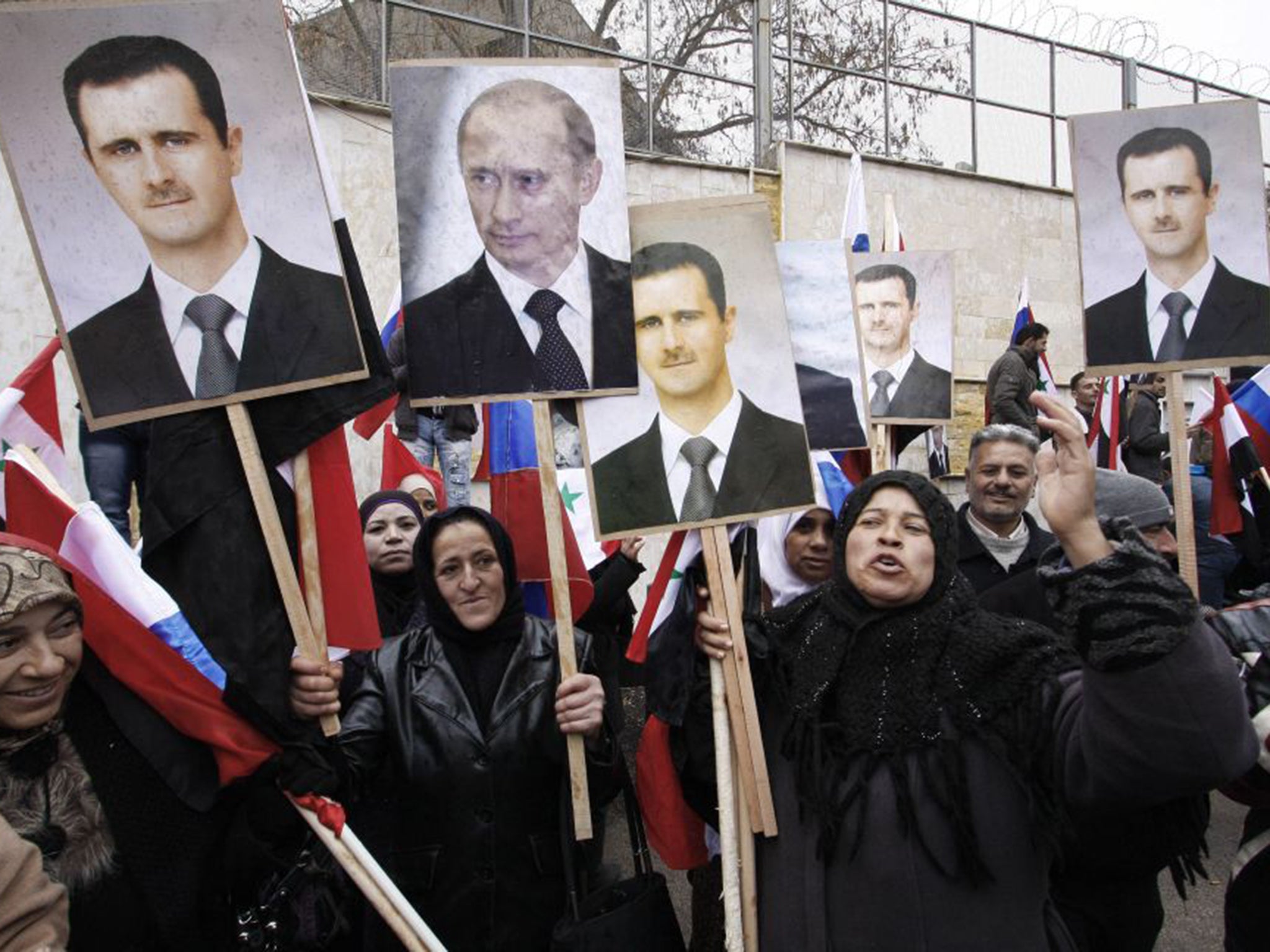John Kerry admits US was disturbed by build up of Russian military in Syria
The West seeks a middle way between Assad and Isis, but experts say Putin is right to back the Damascus regime

John Kerry, the US Secretary of State, has admitted that his country was “disturbed” by Russia’s military build-up in Syria. The movement of Russian fighter jets and other weaponry, including ground-to-air missiles, to Syria could pose a threat to American and allied military forces, he said.
US officials say Russia moved a small number of fighter jets to a base in Syria on Friday, hours after the US Defense Secretary, Ashton Carter, talked with Russia’s defence minister, Sergei Shoygu, in the first military contacts between the two countries in some time.
“Clearly, the presence of aircraft with air-to-air combat capacity ... and surface-to-air missiles raises serious questions,” Mr Kerry said.
The Russians have deployed at least one such system, according to US military analysts who have been scrutinising satellite pictures of the Russian military build-up at a base in the Syrian city of Latakia. Russia says the military build-up will be directed at jihadist groups in the country, which has been torn apart by a civil war between the government regime and rebel groups, which is in its fifth year.
Russia has been one of Syrian President Bashar al-Assad’s strongest allies, and used its veto power four times at the UN Security Council to prevent international sanctions on Syria, with Western nations having been adamant Mr Assad should be removed, until the rise of the so-called Islamic State (Isis) in Syria and Iraq appeared to become the more pressing issue.
Mr Kerry’s comments came after meeting British Foreign Secretary Philip Hammond yesterday. Russia’s apparent new focus on fighting Isis militants could be an fresh opportunity to achieve a new political settlement. The US and Britain “agreed completely” on the urgent need to end this war. “We’re prepared to negotiate,” Mr Kerry added. “Is Assad prepared to negotiate, really negotiate? Is Russia prepared to bring him to the table?”
Military-to-military talks taking place between Washington and Moscow are designed to make sure there are no incidents between Russian and US forces, Mr Kerry said.
Experts say the discussions also amount to a tacit acceptance of Russia’s military build-up after weeks of warnings from Washington against any Russian escalation in Syria.
In another apparent concession, Mr Kerry signalled the US could live with Mr Assad remaining in place for an unspecified time. “We’re not being doctrinaire about the specific date or time – we’re open,” Mr Kerry said, adding that President Assad doesn’t have to leave “on day one, or month one”.
He accused Moscow of a lack of logic by arguing they were bringing in equipment to shore up the Syrian President against Islamic groups without acknowledging that his continued presence at the head of a detested regime acted as a “magnet” for foreign fighters filling Isis ranks.
Mr Hammond said Russian involvement had made the situation more complicated but added that Britain and the US were “completely aligned” on the need for President Assad to go – but the timing and the means needed more discussion.
Experts yesterday questioned the West’s Syrian policy.
Chris Doyle, director of the Council for Arab-British Understanding, said: “It’s really quite difficult to describe the West’s policy towards Syria as coherent. The sacred mantra of Philip Hammond and John Kerry is that Assad must go but it’s not exactly clear how they will do this. The bombing of Isis by the US and its allies has been an embarrassing failure evidenced by its inability to stop the occupation of Palmyra.
“There are no simple answers. We will have to see if the Russians can be persuaded to encourage Assad to go or occupy some symbolic role, but their red line will surely be his replacement with a government that remains sympathetic to Moscow. As for Britain joining the coalition to bomb targets in Syria, well, it’s not going to be a game-changer.”
Mr Hammond stressed yesterday that the Government was clear that if it believed Syrian airstrikes were necessary it would go back to Parliament.
Sir Tony Brenton, former UK ambassador in Moscow, said: “Russia’s central concern is Islamic terror. They loathe Isis and they have taken a pretty hard-headed view about Syria. We in the West have been pretending there is an alternative between IS and Assad despite there being no evidence of that. In fact this week a senior US official went before Congress and admitted that of the 50 moderates only five of them are in the battle.
“Russia has seen there is no alternative so they will back Assad. They know if faced with the choice of Assad or [Isis], the West would make the same choice. They have been trying to persuade us to do the same for some time. Ash Carter picking up the phone to call his counterpart in Russia was a confession that Russia had been right. You will not find Mr Hammond or Mr Kerry admitting that publicly.”
Russian involvement could bring lots of benefits he said: “They know the region, they will bring lots of intelligence.”
The civil war is estimated to have killed more than 200,000 Syrians since the conflict began in 2011. The fighting has forced more than four million people to flee to neighbouring countries while others have been displaced internally .
Elsewhere, a Syrian rebel group has claimed to have fired rockets at the base in Latakia. In a video posted on Friday, a group calling itself the Islam Army warned the Russians that they will not enjoy peace in Syria.
Subscribe to Independent Premium to bookmark this article
Want to bookmark your favourite articles and stories to read or reference later? Start your Independent Premium subscription today.

Join our commenting forum
Join thought-provoking conversations, follow other Independent readers and see their replies